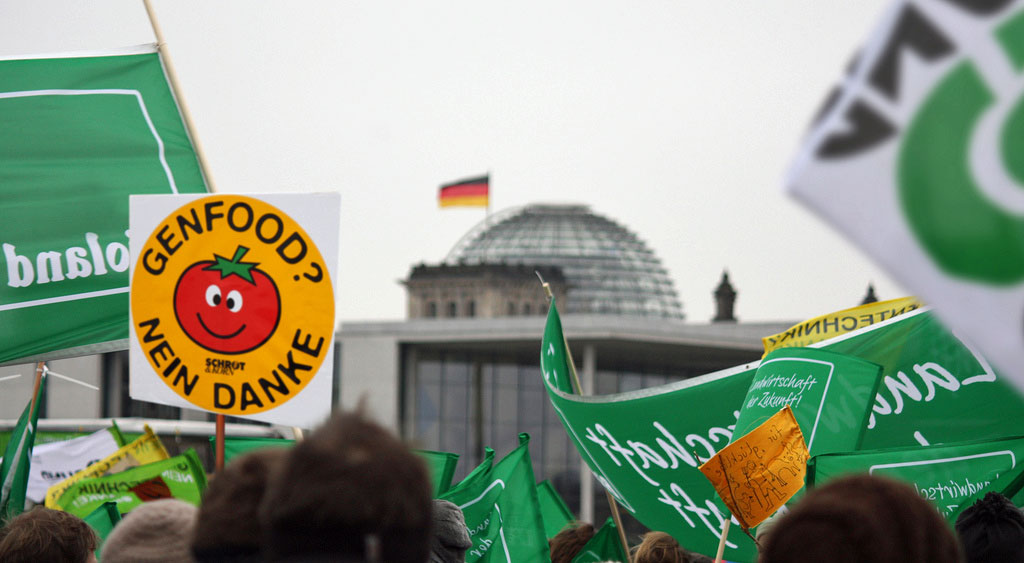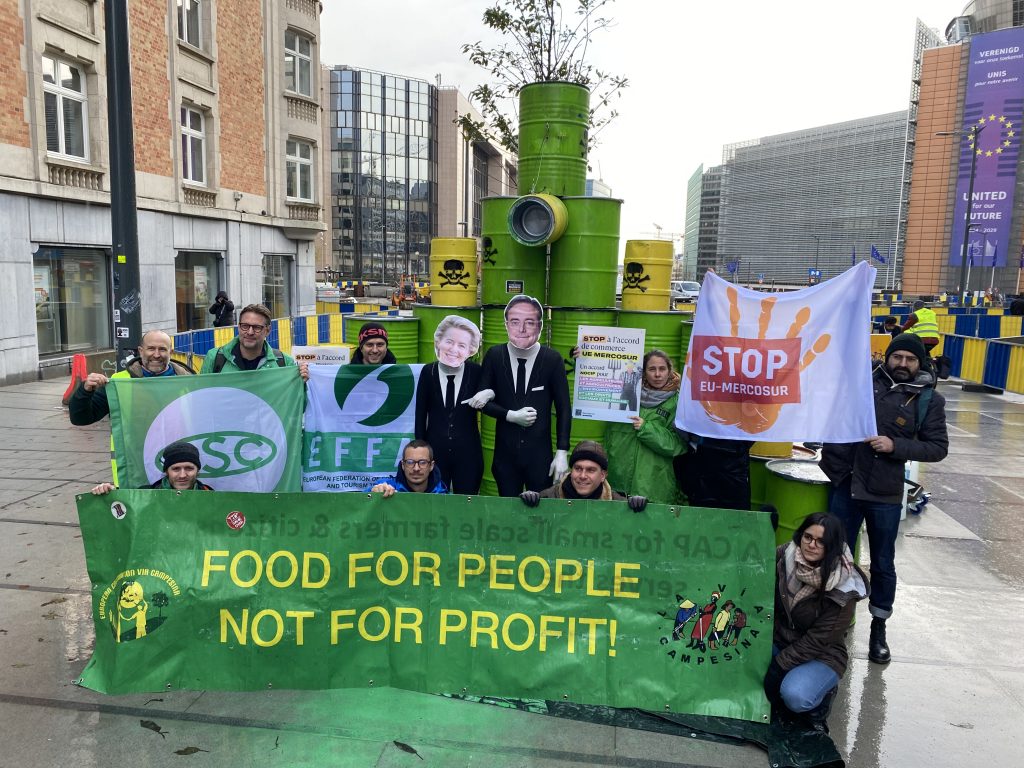The European Commission must bend to overwhelming public and political opposition and ban a new controversial genetically modified (GM) maize, according to Friends of the Earth Europe. The maize, owned by Pioneer Hi-Bred International, is damaging to butterflies and has unknown impacts on bees and other pollinators.
In a vote in the European Council today, the majority of member states opposed the new maize. This reflects a vote in the European Parliament also in opposition to Pioneer’s maize. However, a handful of pro-GM states backed the European Commission, who will now be given the mandate to authorise the GM maize.
Mute Schimpf, food campaigner for Friends of the Earth Europe said: “This is a clear signal: the public don’t want GM, and nor do the majority of their elected politicians or governments. The European Commission must end its love-affair with biotech companies and their GM crops, and stop this toxic maize from reaching Europe’s fields.”
The maize represents a new generation of highly toxic crops, according to Friends of the Earth Europe, producing an insecticide 350 times more lethal than that used for Monsanto’s MON810 maize – the only other GM crop grown commercially in the EU. It is also designed to withstand a powerful weed-killer that is due to be phased out over safety concerns.
Mute Schimpf continued: “Europe’s own safety experts concluded that Pioneer’s maize harms butterflies and moths, and that other impacts on our countryside are unknown. We don’t need to take risks with untested and toxic GM crops when safer and more sustainable ways to farm are at hand.”
The decision comes at a time when the EU and US are in negotiations over a transatlantic trade agreement (known as TTIP) – touted as the biggest bilateral free trade agreement in history. Powerful multinationals, including agri-business, are currently lobbying for the deal to lead to weaker safeguards, in particular on issues related to food and GM crops.
Mute Schimpf continued: “In light of the industry-friendly agenda of the trade talks between the EU and US, the decision whether to license this GM maize is the first real test of the European Commission to see if they will stand up for citizens and the environment or buckle to corporate trade interests.”
If the European Commission authorises the toxic maize for cultivation, it risks being sued by national governments for failing to uphold European Union laws, as demonstrated by the recent court ruling that over-turned the approval of the Amflora GM potato.
Europe needs farming methods that protect the environment and deliver healthy food for all, according to Friends of the Earth Europe.







